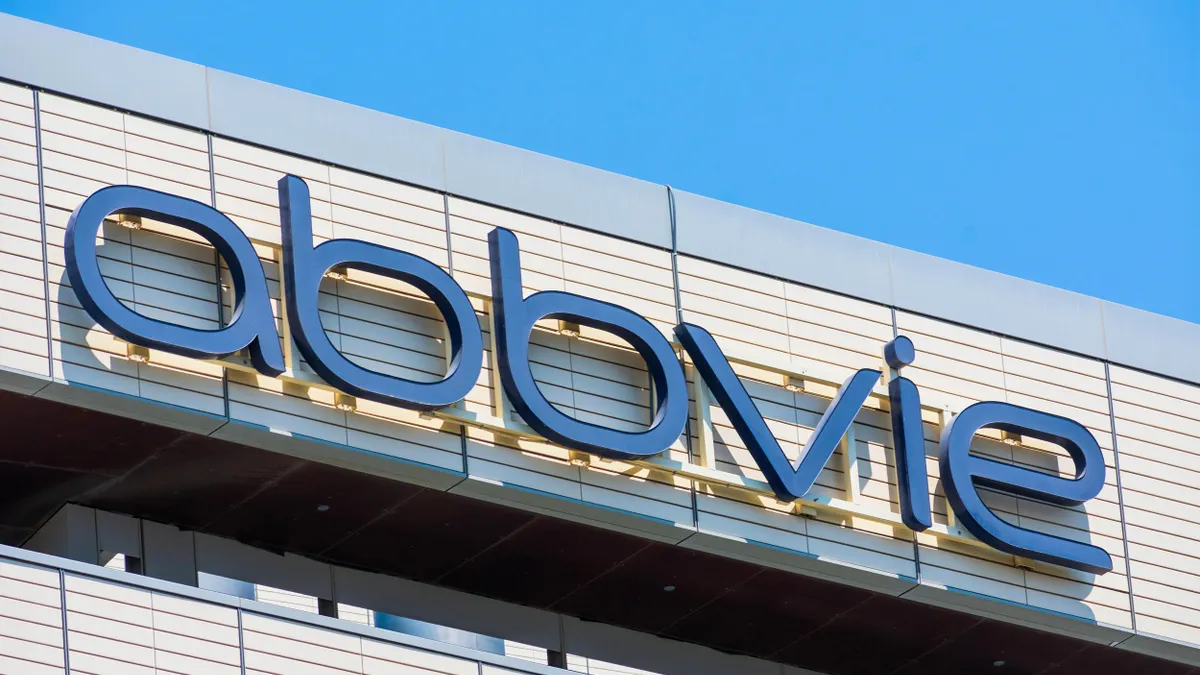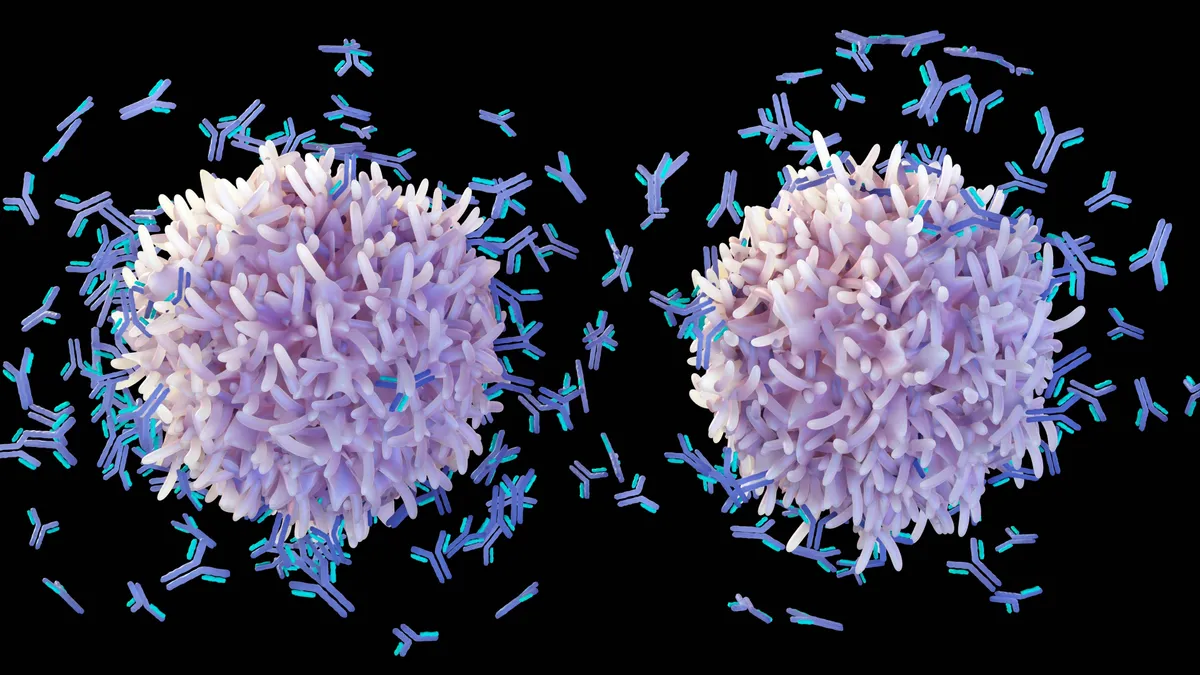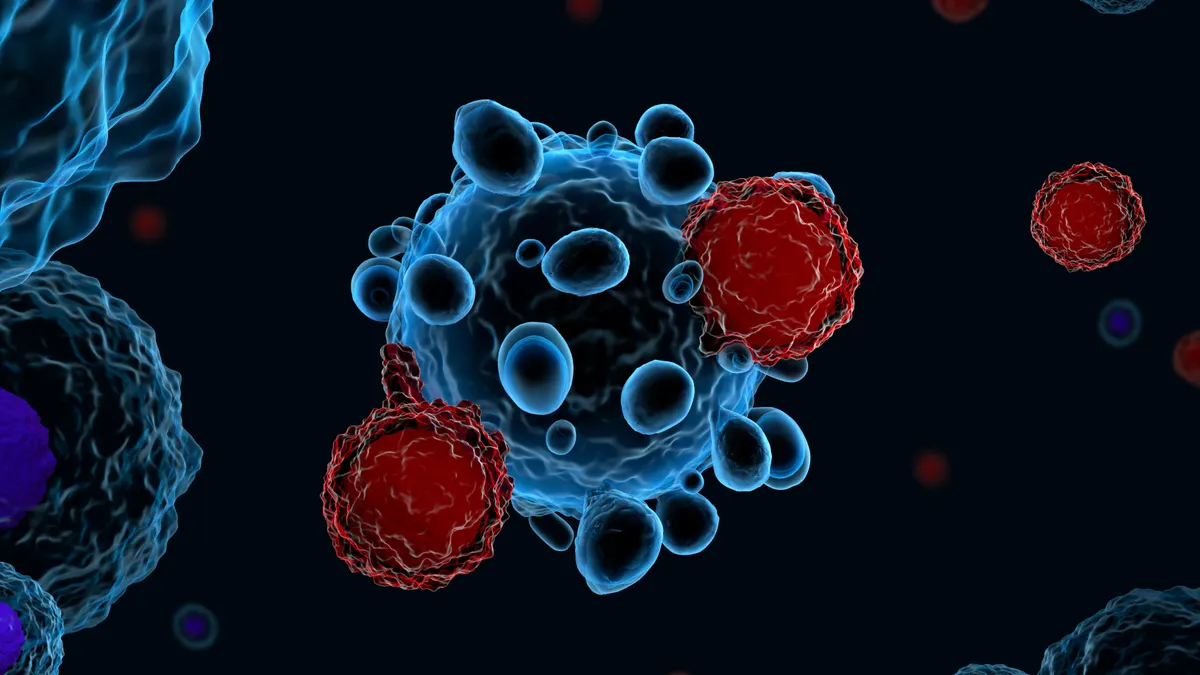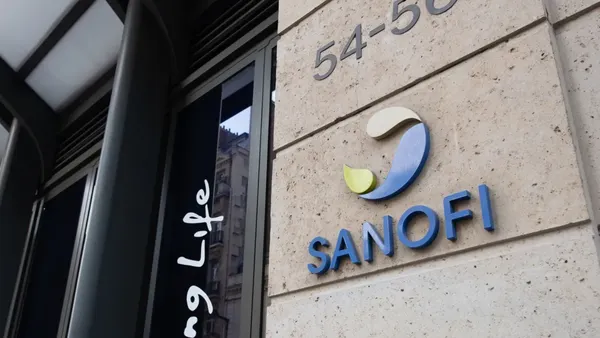Merck & Co. on Friday acquired an experimental drug designed to wipe out the immune system’s B cells in a deal that adds to a surge of industry interest in using so-called bispecific antibodies to treat autoimmune diseases.
Per deal terms, Merck will pay Curon Biopharmaceutical, a privately held, China-based biotechnology company, $700 million upfront for rights to a treatment code-named CN201. Merck could hand Curon an additional $600 million in downstream payments should the drug hit certain development and regulatory approval targets.
Curon’s drug is a type of dual-acting antibody that draws immune cells to a protein on B cells, which churn out protective antibodies but are also the source of certain malignancies and malfunctions that occur in autoimmune diseases. Several approved cell therapies and bispecific drugs have already proven able to treat select blood cancers by zeroing in on proteins on cancerous B cells. But more recent research has suggested the same strategy can be used to treat autoimmune diseases, too.
Curon, so far, has been focused on the former approach. The company is evaluating CN201 in two early-stage trials in forms of lymphoma and leukemia, and presented early data at the American Society of Clinical Oncology meeting earlier this year. Merck said testing has shown the ability to induce “significant and sustained reductions” in B-cell counts, and still plans to test the drug in B-cell malignancies. But it also noted CN201’s potential to become a “novel, scalable option” for autoimmune diseases as well.
“Early clinical data have provided robust evidence for the potential of CN201 to target and deplete circulating and tissue B cells with the potential to treat a range of malignant and autoimmune diseases,” said Merck’s research chief Dean Li, in a statement.
In targeting autoimmune disease, Merck is joining what’s fast becoming one of the more crowded areas of drug research. In the last couple years, more than a dozen clinical trials have begun involving cell therapies for conditions like lupus and myasthenia gravis. But drugmakers are also looking at dual-targeting antibody drugs with similar goals, hoping those medicines might prove to be more convenient, easier-to-manufacture alternatives.
Roche already has two such drugs in early testing. Startup Zenas Biopharma has one that could soon begin Phase 2 trials in lupus and multiple sclerosis. Cullinan Therapeutics is on the verge of trials in lupus and rheumatoid arthritis.
Like Cullinan, Curon has been developing a drug that tracks down the immune cell proteins CD19 and CD3. That approach showed promise in autoimmune disease earlier this year when researchers in Europe published a case report describing encouraging results in a systemic sclerosis patient who’d received Amgen’s CD19- and CD3-targeting drug Blincyto. (Amgen’s drug is approved to treat a form of leukemia.)
“Overall, we view this deal as increasing the support for the potential use of CD19xCD3 therapies in autoimmune diseases,” wrote William Blair analyst Matt Phipps, in a Friday note to clients.
The acquisition also adds to an ongoing shift in the economic terms of drug licensing deals. A recent report from J.P. Morgan found a substantial decrease over the last few years in the size of upfront payments going to preclinical drug companies. Those with medicines in mid- or late-stage testing are receiving much larger guaranteed payouts, the report said.


























